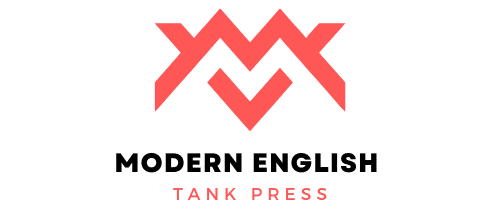How Is AI Being Applied to Enhance the Performance of Solar Energy Systems?

The role of renewable energy in our lives is becoming increasingly relevant as we strive to combat the effects of climate change. Among the different types of renewable energy available, solar power is one of the most promising. Solar power systems convert energy from the sun into electricity we can use. However, like any technology, solar power has its nuances. It is a field ripe for improvement and innovation, and that is where Artificial Intelligence (AI) comes in. AI, with its remarkable capabilities, is being increasingly applied to enhance the efficiency and performance of solar energy systems.
The Role of AI in Optimizing Solar Panel Efficiency
Solar panels are the heart of solar energy systems. They are responsible for the critical task of converting sunlight into electricity. However, their efficiency can be affected by a multitude of factors such as temperature, angle of incidence of sunlight, and dust accumulation. For a long time, these factors were manually monitored and adjusted. But with the incorporation of artificial intelligence, we saw a significant change.
A découvrir également : Can AI-Based Modeling Improve Climate Prediction Accuracies?
AI algorithms can analyze and process vast amounts of data from solar panels in real time. They can identify patterns and trends that would be impossible for humans to discern. This can help predict the optimal operating conditions for each solar panel and adjust them accordingly. It can also identify when maintenance is needed, preventing unexpected breakdowns and enhancing the overall performance of solar energy systems.
AI and Predictive Maintenance of Solar Energy Systems
Maintenance is a crucial aspect of any energy system. Timely maintenance can prevent unexpected breakdowns, prolong the system’s lifespan, and improve its efficiency. In the case of solar energy systems, maintenance becomes even more critical due to the fragile nature of solar panels and their exposure to harsh environmental conditions.
A lire en complément : What Are the Challenges in Scaling Up Gene Therapy Treatments?
AI can deeply analyze the performance data of solar energy systems to predict when maintenance will be required. Machine Learning, a subset of AI, can learn from past data and make accurate predictions about future needs. By predicting when maintenance will be required, AI can ensure that the solar energy system operates at its peak efficiency at all times.
Enhanced Solar Energy Production with AI
Solar energy production can be unpredictable due to the variable nature of its source, the sun. However, with AI, we can better predict and manage solar energy production. AI algorithms can analyze past weather data, map it with the solar energy produced, and predict future energy production based on expected weather patterns.
With such accurate predictions, we can better manage our energy resources. It allows us to optimally use the solar power produced and reduce our reliance on non-renewable energy sources. In essence, AI allows us to make the most of the power of the sun.
AI in Streamlining the Solar Power Industry
Beyond individual solar energy systems, AI has a broader role to play in the solar power industry. It brings in increased automation, efficiency, and accuracy in various industry processes. From manufacturing solar panels to their installation and maintenance, AI can streamline and optimize every step.
For instance, AI can optimize the design and manufacturing process of solar panels to produce more efficient panels. It can also automate the installation process, reducing human errors and ensuring the optimal setup of solar panels. Moreover, it can analyze data from across the industry to predict trends and guide future growth.
The Future of Solar Energy Systems with AI
The future of solar energy systems looks promising with the increasing incorporation of AI. The technology is already proving its worth by enhancing solar panel efficiency, optimizing maintenance, increasing energy production, and streamlining industry operations. With further advancements in AI, we can expect even more improvements in solar energy systems.
In the future, AI could potentially automate the entire solar energy system, from installation to maintenance and energy production. It could also help in creating more efficient solar panels and storage systems, further enhancing the utility of solar power. As we strive for a more sustainable future, AI stands as a powerful ally in harnessing the full potential of solar energy.
As we dive further into the era of renewable energy, the applications of AI in enhancing the performance and efficiency of solar energy systems are only set to grow. AI is not just a tool for optimization; it’s a catalyst for a sustainable future. Together, solar power and AI have the potential to revolutionize the way we generate, consume, and think about energy.
AI for Efficient Energy Storage in Solar Systems
Energy storage is a crucial component of solar energy systems. It ensures the energy harnessed from the sun is stored effectively for use when the sun is not shining, such as during nighttime or cloudy days. However, efficiently managing this energy storage can be challenging. In this scenario, Artificial Intelligence (AI) proves incredibly beneficial.
AI, with its advanced machine learning algorithms, can analyze patterns of energy consumption and production throughout the day. It can predict times of high and low energy demand, allowing for optimized energy storage. By accurately predicting these patterns, AI can help in managing the energy stored in batteries, ensuring it is used efficiently and reducing wastage.
Moreover, AI can also forecast weather conditions, which significantly impact solar energy production. By analyzing historical weather data, AI can predict periods of low solar energy production and manage the energy storage accordingly. This could mean conserving more energy during predicted cloudy periods and utilizing more during sunny periods.
AI can even monitor the health of the batteries used in solar energy storage. It can suggest predictive maintenance for these batteries, ensuring their optimal performance and prolonging their lifespan. This enhances the overall efficiency of the solar energy system and contributes to more sustainable energy consumption.
The Role of AI in Shaping the Future of the Solar Industry
The solar industry is characterized by rapid innovations and advancements. But the incorporation of AI has the potential to revolutionize this industry on a whole new level. AI’s applications in enhancing solar panel efficiency, predictive maintenance, and energy storage management are just the tip of the iceberg.
AI has the potential to automate the entire lifecycle of a solar energy system. This could mean automated solar panel manufacturing processes where AI algorithms are used to design and manufacture solar panels that are more efficient and cost-effective. An automated installation process can ensure optimal setup, reducing human errors and promoting more widespread use of solar energy.
In the realm of energy production, AI can predict the output of solar energy systems based on various factors such as weather conditions, angle of incidence of sunlight, and temperature. This could contribute to a more reliable and efficient renewable energy source.
In addition, AI can help in managing the energy grid, integrating solar energy with other renewable energy sources, and managing supply and demand effectively. This would lead to a more sustainable and resilient energy sector.
Conclusion: The Alliance of AI and Solar Power for a Sustainable Future
As we step further into the era of renewable energy, the alliance of artificial intelligence and solar power is poised to lead the way. From optimizing the efficiency of solar panels to managing effective energy storage, and from predictive maintenance to streamlined industry operations, AI is proving a game-changer in the solar industry.
The continued advancement in AI and machine learning algorithms will undoubtedly bring more improvements and innovations in solar energy systems. AI is not merely an optimizing tool; it is a transformative force that can revolutionize the energy sector.
In the pursuit of a more sustainable future, solar energy systems aided by AI can help us better harness the power of the sun. They can improve energy efficiency, reduce energy consumption, and promote a less carbon-intensive future. The intertwined paths of AI and solar power hold immense potential – a potential that is yet to be fully unlocked. Together, they embody the promise of a revolutionary and sustainable way to think about energy.
